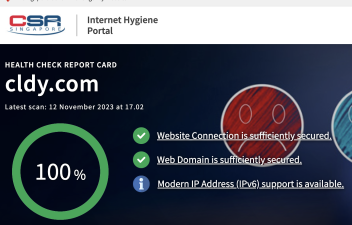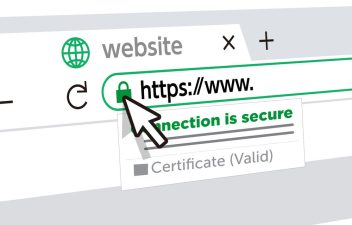Securing a domain for your website can be an exciting albeit distressing experience. You want to ensure that you register your ideal domain before the competitors do. You also want one that’s an exact match of your business name.
While these are important factors when choosing the best domain name for your business, it’s also essential to register domains that are search engine friendly.
Search engine optimisation and domains impact each other in more ways than you think. We’ll dive into that in a bit, but let’s start with the basics.
What is a Domain Name?
Domain names, commonly known as web addresses, are what users type into their browsers to reach a website. For example, CLDY’s domain name is CLDY.com.
Unlike complicated IP addresses, domains are more user-friendly and can easily connect users to the websites they want to visit.
A typical domain name has three parts: a subdomain, a second-level domain, and a top-level domain.Top-level domains (TLDs) appear right next to second-level domains or at the very tail end of your domain name. Some of the most common top-level domains include:
- .com
- .co
- .net
- .org
- .gov
As of 2022, there are more than 1500 TLDs accredited by the Internet Corporation for Assigned Names and Numbers (ICANN), the non-profit organisation managing the Domain Name System (DNS).
A second level domain (SLD) sits right before your TLD. For example, the second level domain of CLDY.com is “CLDY”. As you might have guessed, your SLD is where you place your brand or business name.
Before officially registering your desired SLD and TLD, use a domain checker to see if it’s available first. If it’s not available, you can do any of the following:
- User variations on your SLD. For example, if the domain coffeescape.com is taken, go for a geo-specific domain like coffeescapesg.com instead.
- Do the same for TLDs. As a business, you obviously want to go for a .com extension. But if changing your second level domain isn’t an option, go for a .net, .info, or .co instead. Do this, of course, with caution as using a domain similar to an existing one may result in a violation of trademark rights.
- Try to buy it. If you head to the WHOIS database, you might be able to whip up the domain owner’s contact details. Simply contact them and see if you can come to an agreement.
Finally, let’s talk about subdomains. The purpose of subdomains is to separate sections of a website from the main site. For example, you might have decided to set up a subdomain for your ecommerce site. So your subdomain would end up looking something like this: store.yourmaindomain.com.
How important are Domain Names for SEO?
Before diving into that question, let’s first define SEO.
SEO (or Search Engine Optimisation) are a series of actions done on or off your website to help it rank higher in search engines like Google. With millions of people using search engines to discover online content, ranking higher naturally means seeing a boost in website traffic.
So then comes the age-old question, does your domain affect your website SEO? While not a known search engine ranking factor, there are different ways an SEO-friendly domain name benefits your website. Let’s explore some of them below.
1. Keyword-based domains perform well in search engines
Keyword-based domains are exactly as the name suggests. They target specific keywords related to your industry or niche. For example, if you’re running a blog that does tech reviews, you might want a domain that’s thetechreviewer.com or techreviewblog.com.
2. Exact Match Domains, on the other hand…
Keyword-based domains are great for communicating what your blog or website is about. But website owners tend to take keyword-based domains a step further with an exact match domain (or EMD).
EMDs precisely match popular search queries. For example, you decide to call your website CheapShoes.com. As a result, anyone submitting the popular search query “cheap shoes” is likely to stumble upon your website.
While EMDs sound like a magic shortcut to increasing website traffic, it isn’t always advisable. EMDs tend to be flagged by Google for good reasons: They’re spammy and have a bad reputation for keyword stuffing.
3. Short and concise brandable domains invite clicks
On the opposite end of the keyword, domains are brandable domains. Businesses register brandable domains to build loyalty and familiarity around their brands. There are loads of examples on the internet, including Google.com, Buzzfeed.com, Apple.com, etc.
There is no right answer between brandable and keyword-based domains. But if you’re going for the former, ensure that it’s short, easy to remember, and spell—plus points if you get a domain that’s an exact match for your business! This way, you make it easier for users to land on your website when they search for it on Google.
4. A trustworthy TLD impacts your overall traffic
There’s no question that a .com extension is the most ideal TLD choice for businesses. In fact, it remains to be the most trusted TLD in the world. When remembering a URL, people are 3.8 times more likely to assume it ends in .com.
However, all is not lost when you choose extensions like .co, .online, or .org. These extensions are also recognisable in the marketplace and continue to invite users to visit websites. All you need to ensure is that they match your website’s purpose. For example, .org extensions work for charities, non-profits, and communities. They are not intended for blogs or online stores.
5. ccTLDs show search engines which country your content is targeted at
Country code top-level domains or ccTLDs are given to businesses, organisations, or individuals from a specific country or geographic area. It follows internationally recognised country codes. For example, the ccTLD for Singapore is .SG, the United States uses .US, and Malaysia uses .MY and so on.
ccTLDs are especially useful for local search. If your website uses a specific ccTLD, search engines like Google automatically assume that your website is relevant to people in that area, thus increasing your rankings in local search results.
6. Choose subfolders or subdirectories instead of subdomains
Let’s get one thing straight: There’s nothing wrong with using subdomains. After all, we did establish how beneficial they are for structuring your website.
And although Google sees subdirectories and subdomains equally, you will need to verify your subdomain in Google Search Console—making it certain that Google treats subdomains as separate sites.
Choose a good Domain Name for SEO today
It’s safe to assume that a short, memorable domain that communicates your site’s purpose contributes to your overall SEO strategy. Of course, you should not depend on your domain name alone. To rank in search engines, you need to provide a good user experience, target the right keywords, and create content worth consuming.In the meantime, begin your domain name registration process with CLDY. With a variety of TLDs to choose from, including .SG and .COM. Start building a foundation for your SEO-friendly website.










